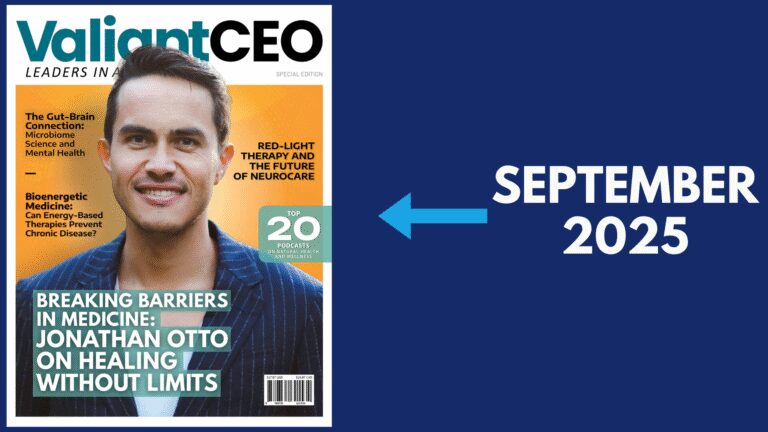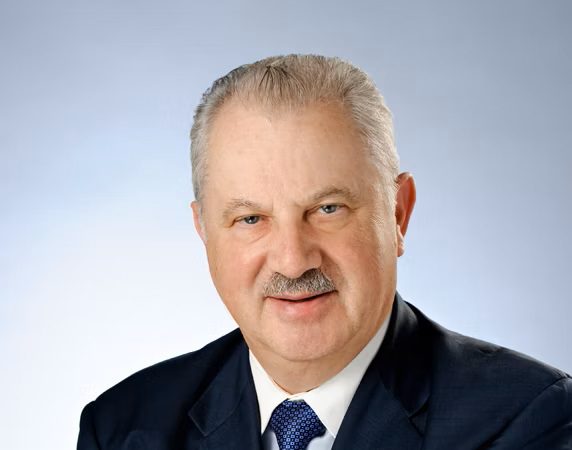Phil Friedman was born and raised in the former Soviet Union. After spending 12 years in numerous positions in the electronics industry, he immigrated to the U.S. and settled in New York City. In addition to his degrees in Electrical Engineering, Economics and Finance from his native country, Mr. Friedman also studied Information Systems in the U.S.
In 1984, Mr. Friedman founded Computer Generated Solutions (CGS), a diversified IT solutions and services company providing software, consulting, systems integration, training and help desk support. Today, with close to 8,000 professionals and a global presence spanning North America, South America, Europe, Middle East, Africa and Asia, CGS maintains a leadership position delivering end-to-end, award-winning solutions in 48 countries around the globe.
Under Mr. Friedman’s leadership, CGS has been recognized by Inc. Magazine, Deloitte & Touche and Crain’s New York Business, among others, as one of the fastest growing privately held technology companies in the U.S. Mr. Friedman has expanded CGS through organic growth as well as the successful integration of several acquisitions.
In 1996, Mr. Friedman was named Entrepreneur of the Year by Ernst & Young, Inc., Inc. Magazine, Merrill Lynch and the City of New York. In 2007, he was awarded the Ellis Island Medal of Honor.
Mr. Friedman’s contribution to the U.S. economy and society were twice recognized by the U.S. Congress.
In 2011, he received an Honorary Doctorate Degree from Yeshiva University.
Company: Computer Generated Solutions, Inc. (CGS)
We are thrilled to have you join us today, welcome to ValiantCEO Magazine’s exclusive interview! Let’s start off with a little introduction. Tell our readers a bit about yourself and your company.
Phil Friedman : Computer Generated Solutions, Inc. (CGS) is a global leader in IT solutions, providing applications, immersive learning, and business process outsourcing services to major enterprises across industries. With thousands of employees worldwide, CGS helps companies enhance performance, reduce costs, and drive innovation.
CGS supports global enterprises, regional companies and government agencies with business applications, enterprise learning, immersive XR solutions for collaboration and learning, and outsourcing services to solve the fundamental business challenges they face.
What emerging technology trends do you believe will have the most profound impact in the next 5-10 years?
Phil Friedman : Over the next decade, artificial intelligence, especially generative and agentic AI, will continue to be the most transformative force across industries. But it won’t be just about automating tasks. The real breakthroughs will come from pairing AI with human-centered applications like immersive training and adaptive learning. Technology has the potential to propel human capabilities exponentially forward. As these technologies mature, the boundaries between humans and machines will blur, with interfaces becoming more intuitive, context-aware, and even capable of independently executing complex tasks — reshaping industries, boosting productivity, and creating new opportunities for innovation.
Can you share a specific technological breakthrough from your company that has the potential to reshape your industry?
Phil Friedman : One of the most profound breakthroughs at CGS has been the development of Cicero, our AI-powered, immersive roleplay platform that allows people to rehearse challenging workplace conversations with lifelike avatars.
The platform was designed to close a long-overlooked gap in enterprise learning: soft skills. It’s estimated that the soft skills gap costs that U.S. economy about $160B annually. We built Cicero so teams could prepare for the kinds of real-world, high-pressure scenarios that traditional training just can’t replicate.
It’s already being used by Fortune 500 companies across healthcare, manufacturing, and retail industries to strengthen communication, de-escalate conflicts, and build leadership skills. What sets Cicero apart is its ability to provide personalized, real-time feedback at scale, helping enterprises build more confident, ready for anything, workforces. It’s a game-changer that is already redefining how workforces train and upskill their employees.
How do you approach innovation while balancing the need for practicality and market readiness?
Phil Friedman : At CGS, innovation has never been about chasing trends. It’s about solving real business problems. We start by listening to our customers, our partners, and our frontline employees. From there, we test and validate solutions in the real world, often with customers who are willing to co-innovate with us.
That’s how Cicero came to be: we saw a growing need for soft skills training that works, and we built the solution in collaboration with enterprise clients willing to pilot it.
Innovation is only meaningful when it’s aligned with market needs and delivers measurable outcomes.
What challenges do you face in integrating cutting-edge technology into existing business models?
Phil Friedman : One of the biggest challenges is change management. Emerging technologies like AI and XR often require a shift not only in tools, but in mindset. Leaders must rethink how their teams work, support continuous learning, and define new measures for success.
There’s also the technology integration piece: novel solutions must work seamlessly with legacy systems and across geographies. This interoperability enables organizations to modernize operations, improve decision-making, and remain competitive while leveraging their existing infrastructure. A trite analogy is changing the engine on a jet while in flight. With the right integration strategy, deployment of advanced technologies can be like switching to rocket fuel in flight.
We always think about how new innovations can work with the technologies and the people you already have. By investing in training and change enablement, we help clients bring their people along on the journey, not just the tech.
How do you foster a culture of innovation within your organization to stay ahead in the tech race?
Phil Friedman : It starts with trust. I’ve always believed in giving leaders the autonomy to think big, experiment, and bring innovative ideas to life. At CGS, we have innovation hubs across several countries including Romania, Canada, and Chile, where our teams can explore innovative technologies and pilot solutions.
We also foster collaboration between each of our divisions — digital supply chain solutions, immersive learning, and business process outsourcing — because innovation rarely lives in a vacuum.
Most importantly, we remind our people that innovation isn’t just about inventing new things. It’s about making life and business better for our customers. That mindset keeps us grounded and forward-looking at the same time.






